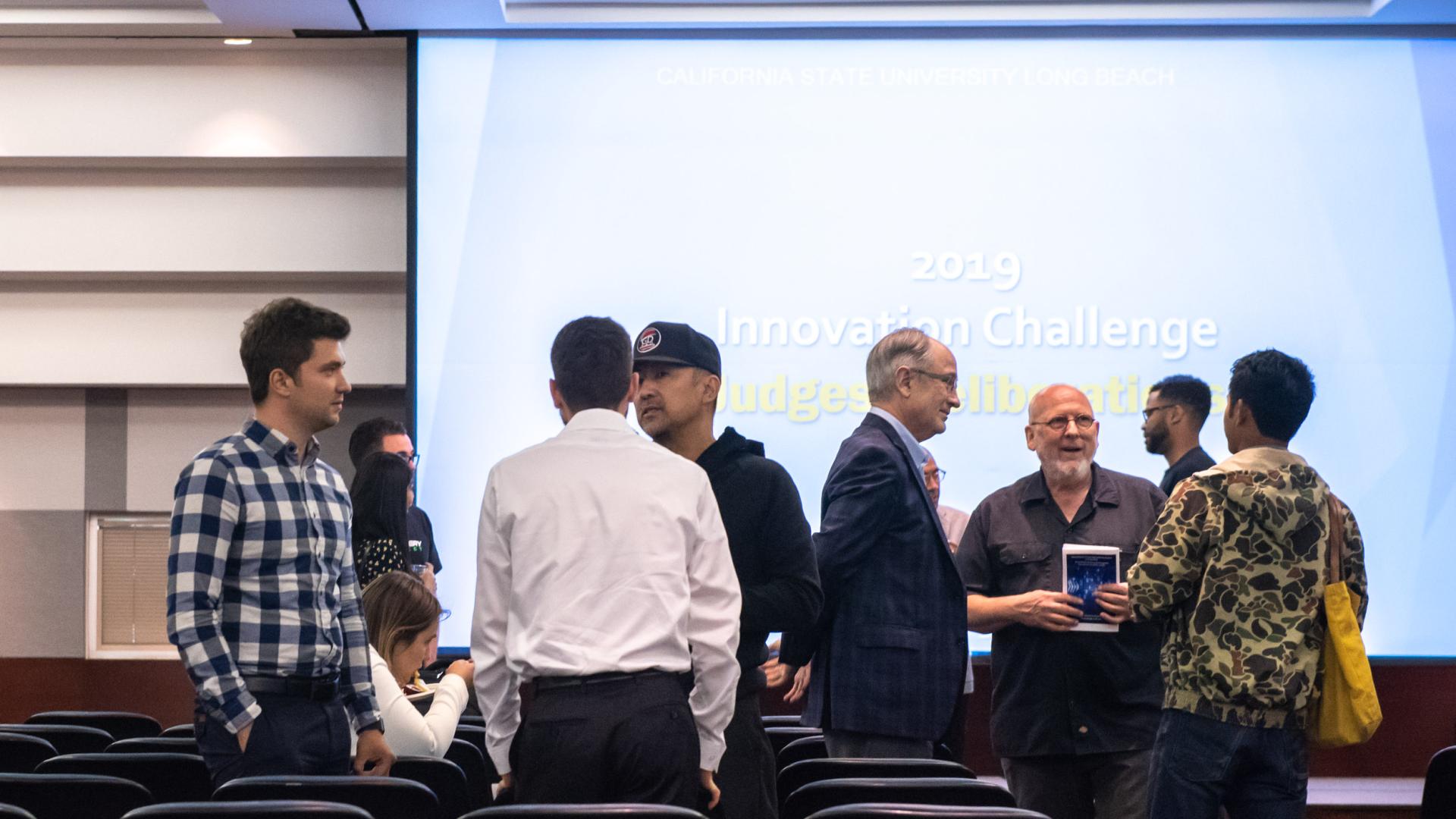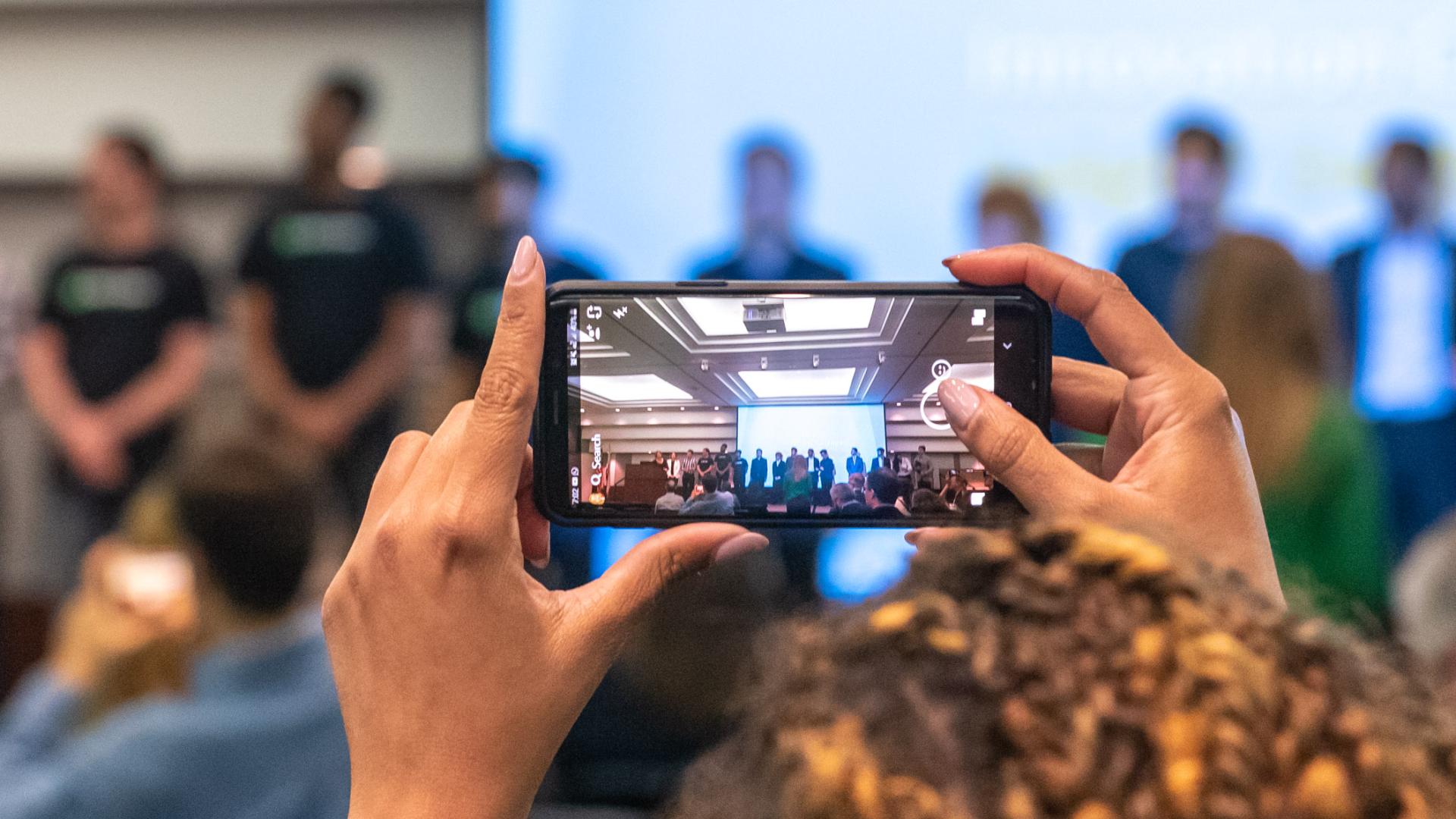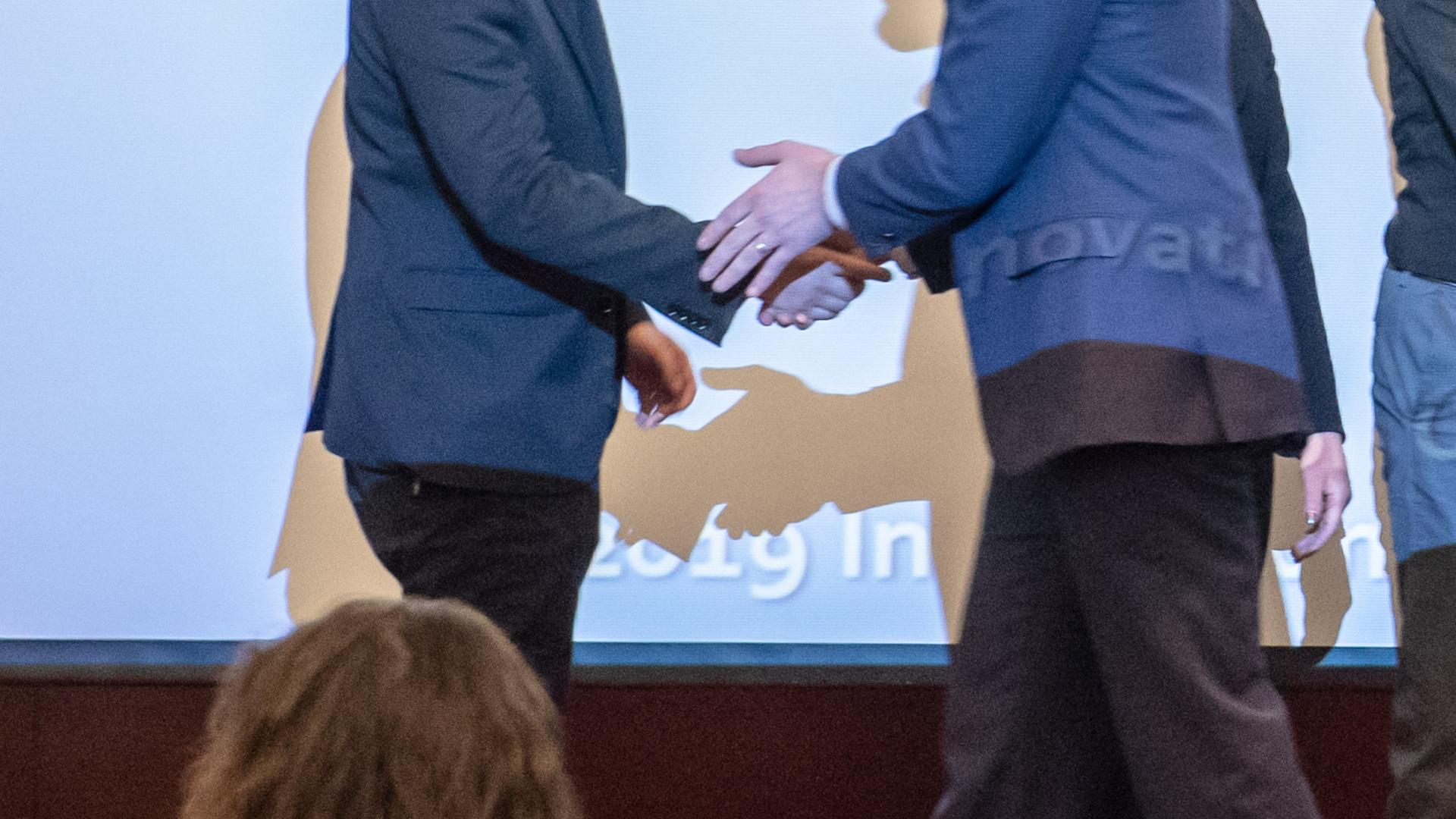Students brew a new idea for a membership company
Coffee is a virtual necessity for many college students, but waiting in line for a cup of java isn’t always convenient, and stockpiling the good stuff can get expensive.
Those are the problems management information systems student Conner Schnicker and his team are trying to solve with their company called Sips Cold Brew. The idea is to give college students an option to join a membership plan and order cold brew coffee, deliverable to their dorms in 32-ounce growlers.
Schnicker and three others on the Sips Cold Brew team had their chance to present their dream to an experts’ panel Thursday evening as finalists in the Innovation Challenge, an annual Long Beach State competition designed to encourage students to think like entrepreneurs. They made the most of it.
Sips Cold Brew provided samples of their product while delivering their pitch to a panel of judges drawn from the Long Beach area business scene. Team members presented key elements of their planning, such as where they intend to produce their coffee, how they estimated the number of California collegians who could become Sips Cold Brew customers, and how much monthly revenue they project to receive from thirsty students.

Schnicker told judges and the audience that Sips Cold Brew’s drinks will taste better than its competitors.
“Our solution is a better business model,” he said. “It’s pretty simple. We have regional production, which allows us to reduce the need for any preservatives, any pasteurization. We have regional distribution, allowing us to reach the college campuses, and we have predictable demand.”
Sips Cold Brew had the winning pitch, and as the latest winners of the Innovation Challenge, the team will receive $10,000 in prize money and additional support. Those rewards will be added to the mentoring benefits they have already received as Innovation Challenge participants.
“It’s been an amazing experience,” Schnicker, a student progressing to a degree in management information systems, said. “Win or lose, we would have taken away so much.”
The Innovation Challenge, in its ninth year, invites students to form teams of colleagues with different specialties and interests and figure out how an actual business sprouts from an idea.
“This nation was built by entrepreneurs, and this university is committed to doing its share in raising the next generation of entrepreneurs here,” College of Engineering Dean Forouzan Golshani said.
Although the completion is centered on business, it’s an interdisciplinary process and a partnership involving the College of Art, College of Business and College of Engineering. Students in the 2018-19 competition approached the event from the perspectives of several different majors, such as chemical engineering, computer science, electrical engineering, industrial design and marketing.
“We have found that adding the voice of the arts to these teams has been really helpful,” College of the Arts Dean Cyrus Parker-Jeannette said. “I’m excited that creatives are being brought to the table of corporations a little bit more and more and more and more to help with problem solving and innovative ideas, and I deeply respect the interdisciplinary activities of engineering, business and the arts.”
The campus’ Institute for Innovation & Entrepreneurship supports the Innovation Challenge, and received more than two dozen letters of intent for the 2018-19 competition. By Thursday, only four entrants remained.
The Finalist Pitch Competition and Award Ceremony is the challenge’s grand finale. Competitors are evaluated on the quality of their business plans, and whether they can stand before a panel of five expert judges and show them how their ideas will have merit in the marketplace, said Wade Martin, director of the Institute for Innovation & Entrepreneurship.
In addition to the cash, winners receive $40,000 of support, such as office space, as well accounting, legal and marketing help.
The three finalist teams who competed with Sips Cold Brew cold had ideas that would help consumers recycle batteries, put a new diabetes screening device on the market and help vegans and others who want plant-based foods find meals.
The other finalists:
- The Battery Effect showed a plan that would give consumers a place to drop off their dead batteries at collection boxes hosted by different stores. People dropping off waste batteries can use an app to get coupons for wherever they deposit batteries, and participating businesses can pay for the prospective foot traffic and marketing data obtained from app users.
- Beach Biotech’s pitch involved establishing a medical device firm. The team wants to sell pharmacies machines that would let customers submit saliva samples to learn if they have, or are at risk of, Type 2 diabetes.
- InstaVegan presented a vision that would offer vegans, vegetarians and “flexitarians” who like to go meatless from time to time a specialized platform to order food.
Although not everyone can win, anyone who enters the competition, and is willing to listen to their mentors and other team members, can learn lessons that will be valuable well after graduation.
“Even for teams that don’t make the finals, the Innovation Challenge helps them develop their skills in organization, helps them to work in teams and build their confidence that they can stand up and pitch something to experts,” Martin said.








